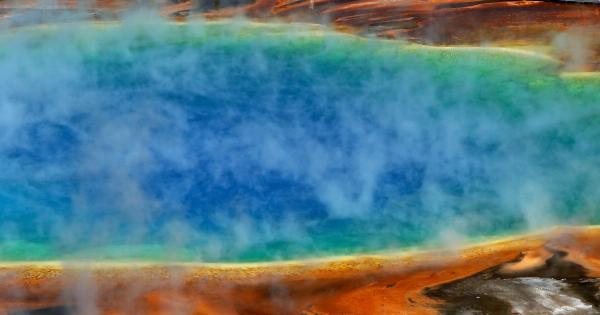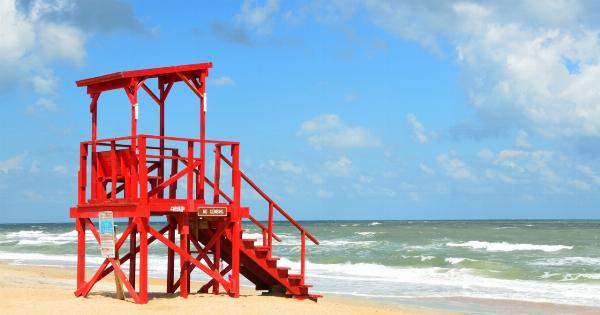As the weather gets hotter, we often find ourselves seeking relief from the scorching sun.
However, for individuals with otolaryngological issues, such as problems related to the ears, nose, and throat, the rising temperatures can bring about a unique set of challenges. Understanding how hot weather affects these conditions is crucial in managing and preventing any potential complications.
In this article, we will explore some common otolaryngological issues that can be exacerbated by hot weather and provide helpful tips to ensure your well-being during the summer months.
The Impact of Hot Weather on Allergies
Allergies are a common otolaryngological issue that affects many individuals year-round. However, the arrival of hot weather can intensify allergy symptoms, making it difficult for those affected to enjoy the outdoors.
During the warmer months, pollen and other outdoor allergens are more abundant, leading to symptoms such as nasal congestion, sneezing, itchy eyes, and throat irritation. High temperatures can also increase the release of air pollutants, further triggering allergies and irritating the respiratory system.
To minimize the impact of hot weather on allergies, it is recommended to:.
- Stay indoors during peak pollen hours, typically in the mid-morning and early evening.
- Keep windows closed and use air conditioning or fans to maintain a cool and pollen-free environment.
- Regularly clean and replace air filters to ensure optimal air quality indoors.
- Wear sunglasses and a hat when going outside to reduce exposure to allergens.
- Consult with an allergist to develop a personalized treatment plan, including medication and immunotherapy if necessary.
Dealing with Sinusitis in the Heat
Sinusitis, an inflammation of the sinuses often caused by infection or allergies, can be particularly bothersome in hot weather.
The heat and humidity create an environment that promotes the growth of bacteria and fungi, potentially worsening sinus infections or leading to new ones. Additionally, spending time in air-conditioned spaces can dry out the nasal passages, further irritating the sinuses and exacerbating symptoms.
To manage sinusitis during hot weather, consider the following:.
- Stay hydrated to help maintain the moisture levels in your sinuses.
- Use a saline nasal spray to keep your nasal passages moist and clear.
- Apply a warm compress to your face to alleviate pain and pressure.
- Avoid excessively cold environments or direct exposure to air conditioning, as it can dry out your nasal passages.
- Follow your healthcare professional’s advice regarding the use of medications such as nasal corticosteroids or antibiotics if prescribed.
Protecting Your Ears from Swimmer’s Ear
Swimmer’s ear, also known as otitis externa, is an infection of the ear canal that commonly occurs during hot weather.
Exposure to water, whether through swimming or excessive sweating, can disrupt the ear’s natural defense mechanisms, facilitating the growth of bacteria or fungi. Symptoms of swimmer’s ear include ear pain, itching, redness, and fluid drainage.
To prevent swimmer’s ear during hot weather, take the following precautions:.
- Dry your ears thoroughly after swimming or showering, using a towel or a hairdryer on a low setting.
- Avoid swimming in contaminated water, such as lakes or pools with inadequate chlorination.
- Wear earplugs when swimming to minimize water exposure.
- Avoid inserting objects into your ear canal, as it can cause irritation or damage.
- If you suspect swimmer’s ear, consult an otolaryngologist for a proper diagnosis and appropriate treatment.
Managing Voice Problems in the Heat
Hot weather can also pose challenges for individuals with voice problems, such as hoarseness or vocal cord dysfunction. Excessive heat and dehydration can lead to vocal strain and dryness, affecting the quality and functionality of the voice.
Additionally, spending time in air-conditioned environments can contribute to vocal fatigue due to the dryness they create.
To maintain a healthy voice during hot weather, consider the following tips:.
- Stay well-hydrated by drinking ample amounts of water throughout the day.
- Avoid excessive yelling, shouting, or prolonged speaking that strains your voice.
- Use a humidifier in your home or office to help moisten the air and prevent vocal dryness.
- Rest your voice when experiencing symptoms of vocal fatigue or hoarseness.
- If voice problems persist, consult with a speech-language pathologist or an otolaryngologist for further evaluation and guidance.
Preventing Heat-Related Nosebleeds
Nosebleeds, also known as epistaxis, can occur more frequently in hot weather due to low humidity levels and increased exposure to dry air.
The hot climate can dry out the nasal membranes, making them more prone to inflammation and the formation of nasal scabs that may lead to bleeding. Engaging in outdoor activities during the hottest parts of the day and prolonged sun exposure can further heighten the risk of nosebleeds.
To prevent heat-related nosebleeds, try the following measures:.
- Use saline nasal sprays or ointments to keep your nasal passages moist.
- Avoid picking your nose or forcefully blowing your nose, as it can damage the blood vessels in your nasal lining.
- Apply a thin layer of petroleum jelly inside your nostrils to add moisture and protect against dryness.
- Wear a wide-brimmed hat and use sunblock to protect your nose and face from excessive sun exposure.
- If nosebleeds persist or are severe, seek medical attention as it may require further evaluation and treatment.
Staying Safe and Healthy in Hot Weather
While hot weather may pose specific challenges for individuals with otolaryngological issues, it’s crucial to take general precautions to ensure your overall well-being during the summer months. Here are some essential tips:.





























